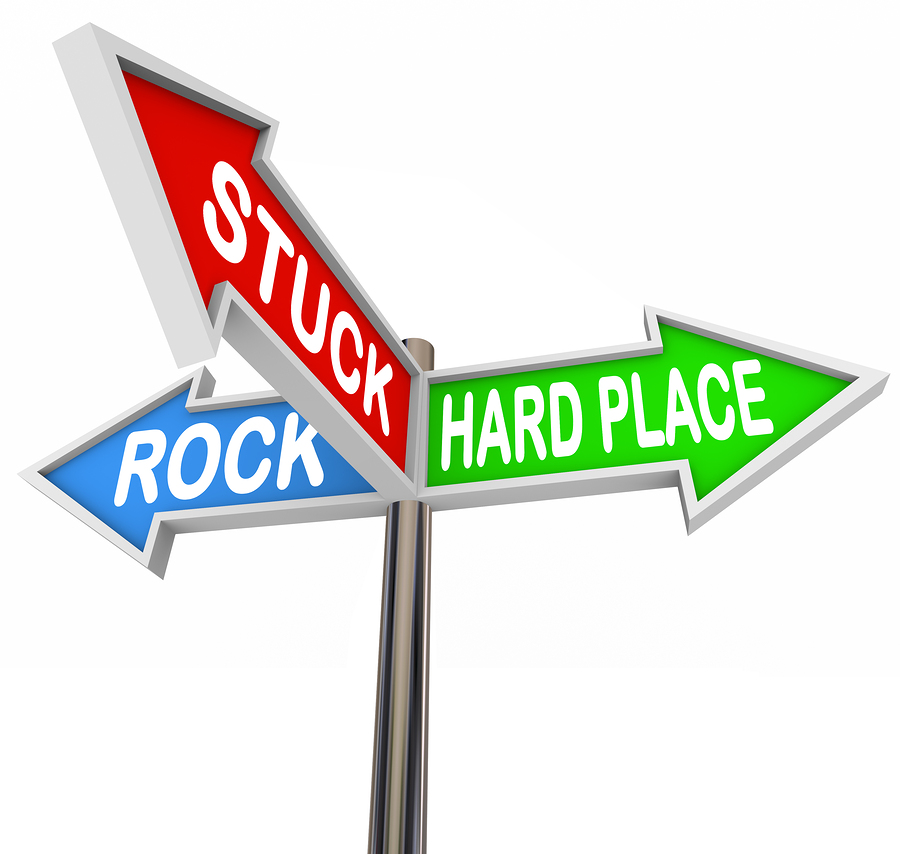There are two kinds of cliches. There are the cliches everyone uses and there are the ones you create. Both are generally used without a lot of thinking but are picked up by people listening to you or reading what you wrote. A simple definition for cliche is: A phrase, word or opinion that is overused and betrays a lack of original thought. Not a good thing to be conveying to a prospect or client!
In marketing communication, every word you use is important. So using anything that causes a client to disconnect from a marketing message has to be avoided.
 A service provider that handled some tech for us (video, website development, etc.) had his own personal cliche. No matter what you asked him regarding his ability to handle a situation or produce a solution – he responded “absolutely,” every time! He didn’t realize how instantly his reply told us that he had no clue. A client I worked with several years ago also used a self-created cliche whenever he learned something new. Not being able to admit he did not know the information he instead would say “No kidding” in a way to try to indicate that he already knew whatever was just said. A man I worked for had a love affair with “basically and fundamentally” repeating those three words in nearly every conversation – several times. He never realized he would say the same thing and didn’t even tune in to the redundancy of the words themselves.
A service provider that handled some tech for us (video, website development, etc.) had his own personal cliche. No matter what you asked him regarding his ability to handle a situation or produce a solution – he responded “absolutely,” every time! He didn’t realize how instantly his reply told us that he had no clue. A client I worked with several years ago also used a self-created cliche whenever he learned something new. Not being able to admit he did not know the information he instead would say “No kidding” in a way to try to indicate that he already knew whatever was just said. A man I worked for had a love affair with “basically and fundamentally” repeating those three words in nearly every conversation – several times. He never realized he would say the same thing and didn’t even tune in to the redundancy of the words themselves.
Common cliches are – well, more common! How many times do you hear, “Let me be honest here” when someone wants you to feel the sincerity? Does it work? How about, “for the record” or “off the record” as a way to impress? You can likely come up with hundreds of examples and nobody is immune. I realized when delivering a training seminar that I was saying “the bottom line is” every time I wanted to focus on the importance of each point I was making. Once I realized what I was doing and did a better job of listening to what I said rather than just saying it, I was able to avoid cliches.
 There are several websites dedicated to cliches that are searchable and alphabetized. http://clichesite.com/alpha_list.asp?which=lett+1. This site has thousands of cliches listed. If you take a look you might start to realize how often we all use cliches. You might also realize how you react when someone else uses them when trying to keep your attention and how that rarely works! Marketing communications is everything you do and say up to the moment a sale (or transaction) takes place. By using exactly the right words to clearly communicate you can make what you say memorable rather than sounding like everyone else using cliches. Here is an example:
There are several websites dedicated to cliches that are searchable and alphabetized. http://clichesite.com/alpha_list.asp?which=lett+1. This site has thousands of cliches listed. If you take a look you might start to realize how often we all use cliches. You might also realize how you react when someone else uses them when trying to keep your attention and how that rarely works! Marketing communications is everything you do and say up to the moment a sale (or transaction) takes place. By using exactly the right words to clearly communicate you can make what you say memorable rather than sounding like everyone else using cliches. Here is an example:
“Well Bob, time to put your money where your mouth is. I know money doesn’t grow on trees and money won’t buy happiness, but if you want to make some easy money, now is the time - time is money, Bob.”
vs.
“Bob, everything we discussed indicates that this investment now will bring you a good return quickly and allow you to capitalize on great timing. I don’t want you to miss this opportunity.”
Which one do you think will have the most compelling effect on Bob? Which is more likely to leave a lasting impression? And which is more likely to sound similar to what everyone else told this customer? By avoiding cliches the professionalism of what you say or write will be apparent even if your client doesn’t realize why. Improving your communications will grow your business and income.
Another skill, as important as not using cliches, is avoiding “stalls” or words repeatedly used to hold up what you are saying to give your brain a chance to catch up! Kids start saying “um” or “ahh” as they search for words to construct a sentence. Many people never leave those stalls behind as they grow. The one that throws off my concentration the most is “you know.” Some people are so trapped by this phrase that they will start a sentence with it, end the same sentence with it and throw it in the middle a few times too. Recently a radio talk show host said this; “You know, the president, you know, held that meeting, you know, without any news coverage at all you know”. It completely took my attention away from the point and focused on the inability to construct the thought without the stalls. There are two ways to avoid using stalls. Know what you want to say. Prepare for meetings and you won’t have to search your memory for the words you need. Failing that – just pause without saying anything. That actually can be impressive if you don’t do it too much.
Not everyone is a great writer or comfortable speaking before a crowd (or even smaller meetings), but everyone can improve. Marketing is all about communication, using words that will motivate and that will result in more business. And that’s the bottom line – oops!
Gregg Emmer is chief marketing officer and vice president at Kaeser & Blair, Inc. He has more than 40 years experience in marketing and the promotional specialty advertising industry. His outside consultancy, providing marketing, public relations and business planning consulting to a wide range of other businesses has been a useful knowledge base for K&B Dealers. Contact Gregg at gemmer@kaeser-blair.com.